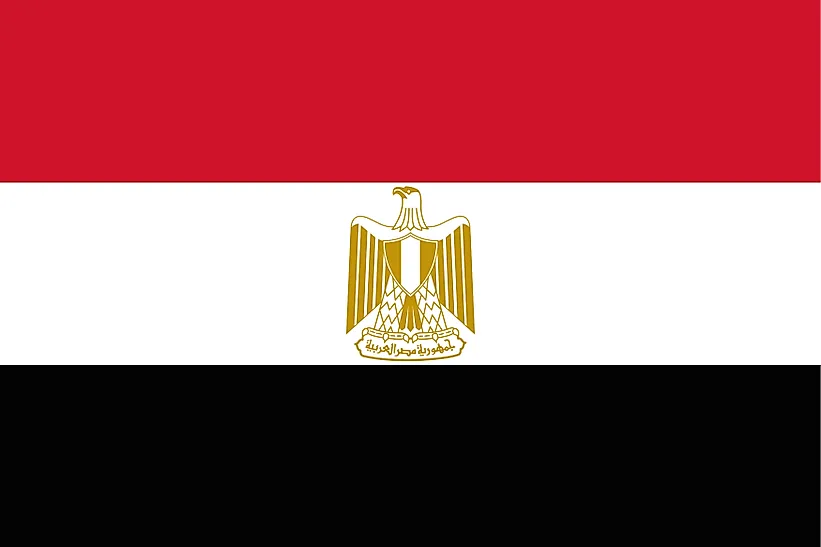
Egypt
| Continent | Africa |
| Capital | Cairo |
| Population | 94,666,993 |
| GDP | $1.11 Trillion |
| GDP per Capita | $12,100 |
| Dialing Code | +20 |
| ISO Code (2-letter) | EG |
| ISO Code (3-letter) | EGY |
Egypt Landscapes






About Egypt
Welcome to Egypt, a nation where ancient wonders meet modern development along the life-giving Nile River. With approximately 104 million people occupying 1,001,450 square kilometers, Egypt combines millennia of historical heritage with contemporary aspirations, creating a country that bridges Africa and the Middle East.
Geographic Features and Natural Beauty
Egypt’s geography is dominated by the Nile River, which creates a fertile valley and delta in an otherwise desert landscape. The country features four major regions: the Nile Valley and Delta, the Western Desert, the Eastern Desert, and the Sinai Peninsula.
The Great Sand Sea in the Western Desert contains massive dunes and oases, while the Red Sea coast features spectacular coral reefs and marine life. The Sinai Peninsula combines rugged mountains, including Mount Catherine (the country’s highest peak), with coastal beauty.
The Nile River, the world’s longest river, has shaped Egyptian civilization for millennia, creating a narrow band of fertile land that supports most of the country’s population. The Mediterranean and Red Sea coasts offer diverse marine ecosystems and popular tourist destinations.
Cultural Heritage and Traditions
Egyptian culture represents one of the world’s oldest continuous civilizations, with a heritage spanning over 7,000 years. The ancient monuments, including the Pyramids of Giza and the temples of Luxor, stand as testaments to this remarkable legacy.
Traditional arts include distinctive music featuring instruments like the oud and tabla, intricate textile work, and pottery. Egyptian cuisine features dishes like koshari, ful medames, and various mezze, reflecting influences from throughout the Middle East and Mediterranean.
Modern Egyptian culture blends ancient traditions with contemporary expressions, particularly in literature, cinema, and music. The country’s Islamic heritage coexists with Coptic Christian traditions, creating a unique cultural mosaic.
Historical Journey
Egypt’s history spans from prehistoric times through the glory of the pharaohs, various foreign rulers, to modern independence. The ancient Egyptian civilization developed sophisticated art, architecture, and writing systems that continue to fascinate the world.
After periods of Greek, Roman, Arab, Ottoman, and British influence, Egypt emerged as a modern nation-state in the 20th century. The construction of the Aswan High Dam and Suez Canal marked significant developments in modern Egyptian history.
Modern Economic Landscape
Today’s Egypt has the Arab world’s second-largest economy, based on diverse sectors including tourism, manufacturing, agriculture, and services. The Suez Canal remains a crucial source of foreign currency and global maritime trade.
Recent development projects include the New Administrative Capital and significant investments in infrastructure. The country’s strategic location and large workforce support its role as a regional economic power.
International Relations and Global Position
Egypt maintains significant influence in Arab, African, and Mediterranean affairs. The country plays crucial roles in regional diplomacy and hosts the Arab League headquarters.
Did You Know?
• The Great Pyramid of Giza was the world’s tallest man-made structure for over 3,800 years?
• Egypt is the only country that spans two continents (Africa and Asia) via the Sinai Peninsula?
• The Egyptian Museum contains over 120,000 ancient artifacts?
• The Library of Alexandria was the largest library of the ancient world?
Conclusion
Egypt represents an extraordinary combination of ancient heritage and modern ambition. From its pyramids to its new cities, from its desert landscapes to its coastal resorts, Egypt continues to evolve while preserving its remarkable cultural legacy. As it addresses challenges including population growth and water resources, Egypt remains committed to development while maintaining its position as a cradle of civilization and bridge between cultures.